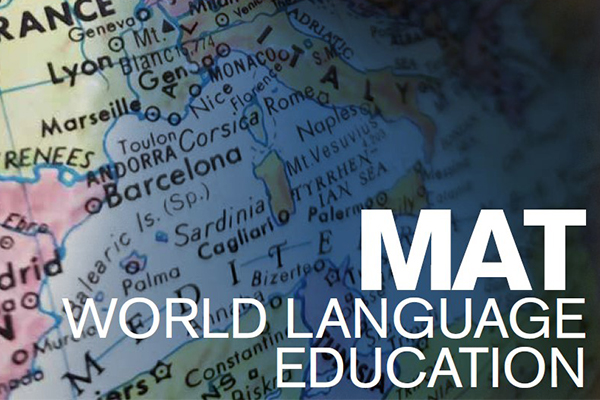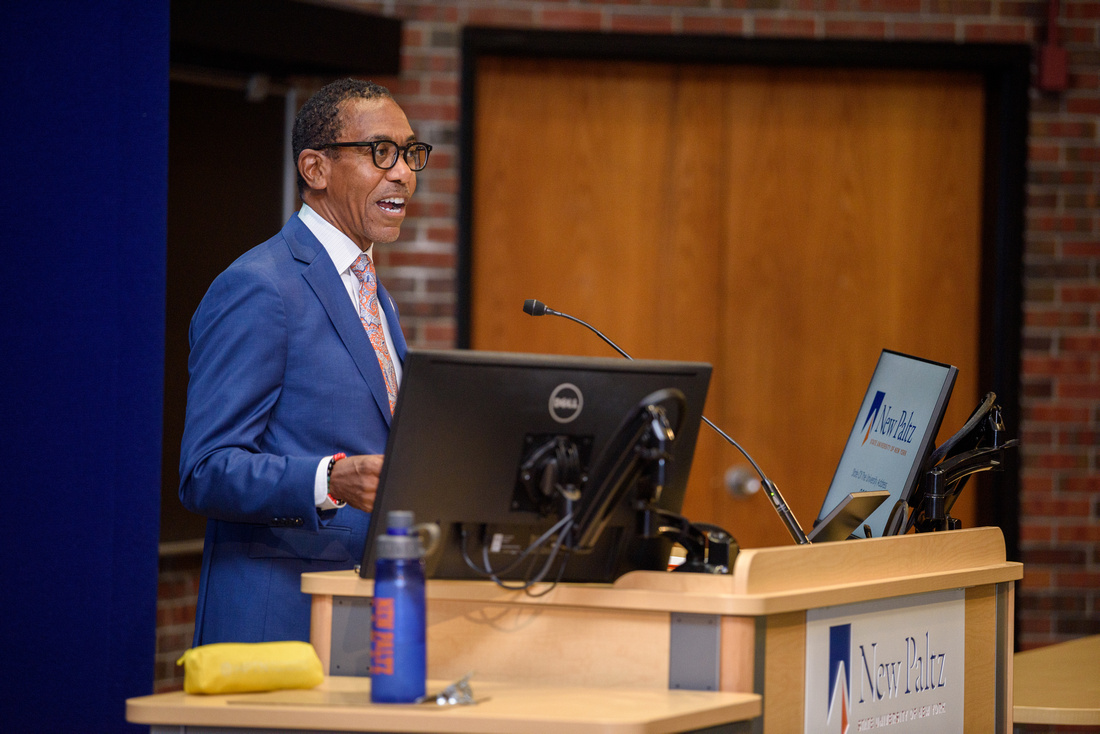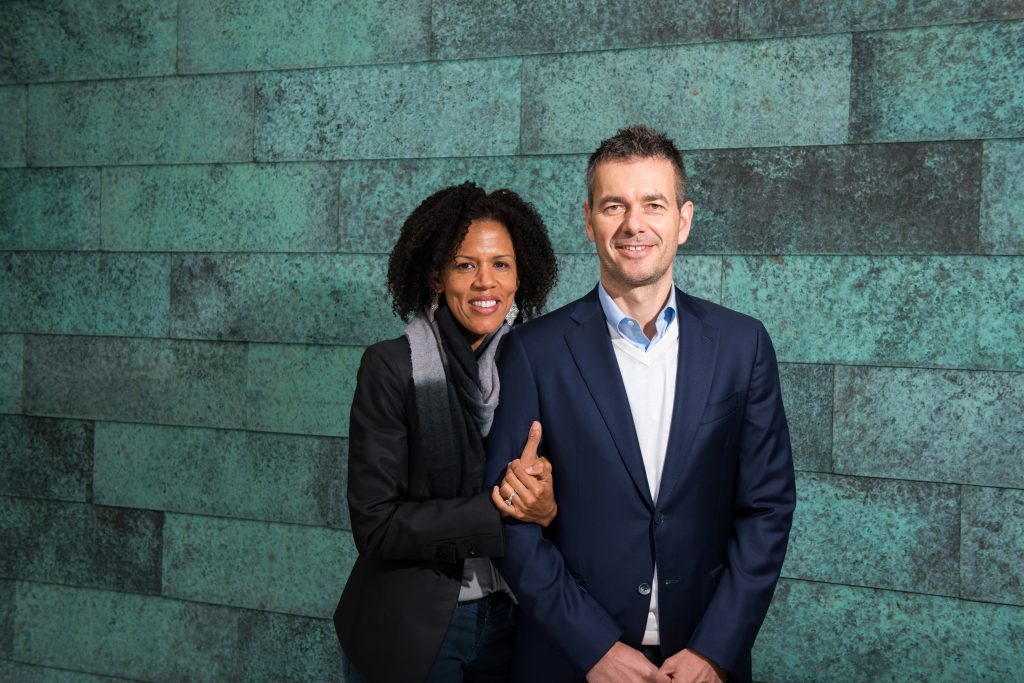What can you do with an MPS Social Justice Educational Studies Degree?
School of Education

At its core, social justice is about advocating for more sustainable, equitable and just relationships across all areas of society. Students in multicultural and diversity studies learn how to combat divisive forces that stand in the way of social justice, as well as help every person understand their own value and power.
Earning a social justice in educational studies degree allows professionals from many different career fields to learn how difficult cultures interact, and also how to become - and teach others how to become - socially responsible people in a global environment. They focus on the best practices for educating people about and promoting tolerance and acceptance of diverse cultures and ethnic groups.
These are critical skills in the current global environment, especially for educators, human services workers and business leaders.
The Need for Social Justice Experts
Social justice centers on the idea that everyone deserves economic, social, and political rights and opportunities. The National Education Association (NEA) provides an example of the need for those with expertise in humanistic and multicultural education.
The NEA notes that social justice focuses on equitable treatment of every student, including division of resources, as well as keeping them safe both physically and psychologically. But they write that this is not the case in many places: “Students in poorly funded schools don’t have the technology, new books, or art and music programs that create a well-rounded education, while students in affluent areas have the latest academic resources, school counselors, librarians, and more to help them succeed.”
That’s just one of many examples of the need for social justice. These situations occur across all areas of the economy. In healthcare, there are well-known disparities in health care and health outcomes between white patients and people of color. In business, women continue to earn less than men while working in similar jobs, and there are only a handful of Black and Hispanic CEOs leading Fortune 500 companies.
What can you do with a Social Justice Degree?
A social justice educational master’s degree focuses on developing the knowledge and skills graduate students need to apply social justice concepts in educational and other settings. Many graduates from the program work in higher education, human services and nonprofit professional settings.
K-12 teachers who want to apply social justice education principles and practices in the classroom also benefit from this degree program. Teachers also can earn their professional NY State Certification through this program.
Those in other careers also can benefit. A graduate-level program helps people develop leadership skills required to lead diverse, pluralistic communities. They include journalists, victim advocates, grant writers, community developers, lobbyists and policy analysts.
What You Learn in a Social Justice Educational Program
Those who enter a social justice degree program take courses that delve into a wide variety of topics. They include human services, sociology, psychology, conflict resolution, history, political science, English, philosophy, and management.
At SUNY New Paltz, learning outcomes in the MPS in Social Justice Educational Studies include:
- Social justice content knowledge. Understanding how systems of inequality shape lives and institutions and how to engage social justice education to foster more sustainable, equitable, and just relationships.
- Applying theory to practice. Using self-reflection and assessment processes to engage in action and reflection that center justice-oriented theories, beliefs, values, and relationships.
- Critical analyses. Drawing on reflective, critical thinking, listening, and questioning practices, students integrate critical analyses into their educational work.
- Fostering equity. Students learn to foster educational and social equity that seeks to transform relationships and share power across differences.
- Socially responsible leadership. By understanding the connections between personal, institutional, and social change, students learn how to lead as ethically and socially responsible human beings in their workplaces and communities.
The SUNY New Paltz MPS Social Justice Degree
SUNY New Paltz has a long history of providing humanistic/multicultural programs. The university first offered an MPS (Master of Professional Studies) in Humanistic Education in 1978, a program that grew out of a concentration in Humanistic Education for Elementary Education teachers.
That began a rich legacy of offering holistic, equity-based, and justice-centered education. The university renamed the program Humanistic/Multicultural Education in 1999 (along with professional certification for Special Subjects teachers) and Social Justice Educational Studies in 2021.
In 2008, the University added a 15-credit post-master's certificate of advanced study. The University also hosts an annual conference that focuses on social justice issues.
SUNY New Paltz designed its program for people who aspire to leadership positions in their career fields with a focus on supporting diversity, equity, and inclusiveness in all areas of society. Over almost five decades, generations of alumni from the SUNY New Paltz program have built strong professional networks in New York State and beyond.
The 30-credit MPS Social Justice Educational Studies program is designed for students interested in developing their knowledge and skills in social justice education. The program offers students the opportunity to learn a self-reflective, process-oriented approach to diversity, equity, and social justice.
The SUNY New Paltz program centers social justice and critical thinking by using an experiential and participatory process that integrates intellectual/cognitive and social/emotional learning. Students learn to foster personal, communal, and institutional social change as well as promote more humane, democratic, and inclusive classrooms, organizations, and communities.
New Paltz News
@Sunynewpaltz
![]()



